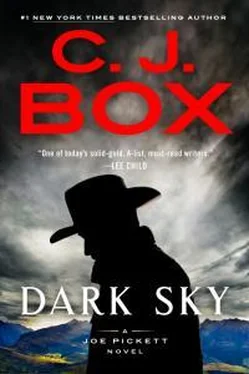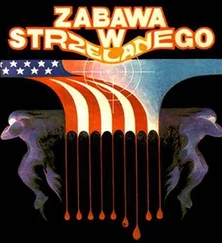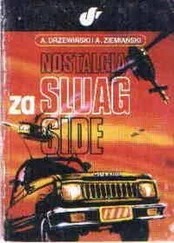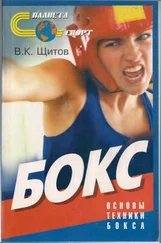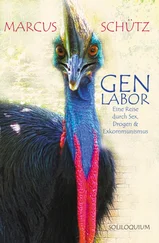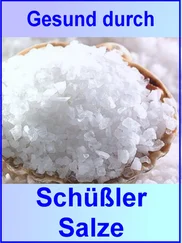But because Tuckness couldn’t rely on a steady flow of dead prairie dogs from local varmint hunters—or the carcasses he received from them were too blown up by gunfire to be salvaged—he’d built an add-on facility next to his shop to raise the creatures himself. Nate had purchased a few of the prairie dogs to feed to his falcons when the valley was buried by snow or when he hadn’t been able to trap or hunt himself. He’d also sent Sheridan to pick up a few of the rodents from time to time.
That’s how he found out that Tuckness had a crush on the girl. The taxidermist not only gave her significant discounts on her purchases, but he also called Liv every few weeks to say that he had excess rodents if Sheridan wanted to stop by and procure them.
Nate knew that Tuckness would do just about anything to keep Sheridan in the shop and talking to him, which was why he’d ask her to go inside while he waited in the van.
Twenty minutes later, Sheridan emerged on the street carrying a small box in her arms. She climbed into the van and placed it at her feet.
“He only had four he could spare,” she said with a triumphant grin.
“Only four?”
“That’s because somebody bought two dozen of them earlier this week. Wiped him out, he said.”
Nate raised his eyebrows, waiting for more.
“Dusty said he’d never seen the man around here before. He described him as a fidgety tweaker type wearing all black. Dusty charged the guy more than double per prairie dog, fifty bucks each, and the guy paid it.”
Nate narrowed his eyes, thinking. The photo and description they’d found for Axel Soledad didn’t fit the man Tuckness had described.
“The guy didn’t have enough cash on him,” Sheridan said, “so he had to pay the balance with a credit card.”
Before Nate could ask, Sheridan drew out her phone and showed him a photo of the credit card receipt. “Raylan Wagy is his name,” she said.
“Never heard of him,” Nate said.
“Neither had Dusty before then. He said Wagy left the shop pretty agitated, like he was under pressure to buy the prairie dogs, but he didn’t want to have to use his card.”
“Interesting.”
“I looked up his name on my phone. A Raylan H. Wagy was arrested in Denver for assault at an antifa rally three months ago. This has to be him.”
Sheridan said, “So when Wagy drove away from here, he burned rubber on the street and got picked up by one of the local cops for reckless drivng or something. Dusty said he watched the whole thing go down. Which means I now need to call my mom.”
Nate pulled away from the curb in a reasonable manner, looking both ways for local police cruisers. He had to be very careful these days, he knew.
“Why your mom?” he asked.
“She knows everybody at town hall,” Sheridan said. “She can get Raylan Wagy’s address from the citation.”
Nate whistled and shook his head. The investigative skills of Sheridan, Liv, and Marybeth continued to amaze him.
They were nearly back to his compound when a text chimed on Sheridan’s phone. She read it and said, “It’s a temporary address, but it’s an address: Raylan Wagy, 114 County Road 189.”
“Spring Creek Road,” Nate said. “There are a bunch of old ranches out there with plenty of empty buildings.”
—
While Nate checked the oil on the Power Wagon in preparation for taking it out, both Sheridan and Liv had asked him not to go out there alone. He’d assured them it was strictly a reconnaissance run, which might or might not turn out to be true.
The snow continued to fall harder as he drove. The ancient heater beneath the dashboard howled as if injured and it filled the cab with an acrid burned-dust smell. The wipers smeared the windshield but kept up.
As he’d mentioned to Sheridan, there were a series of old ranches and homesteads on Spring Creek Road. In an area where cattle companies comprised thousands of acres each, these properties seemed tightly spaced. They’d been founded by some of the first settlers in the valley, who’d been drawn by the water, which was sparse everywhere else. Some of the ranches were still in operation with cattle grazing in meadows or penned in corrals, but most of the properties had been abandoned and bought up by bigger operations.
Fourteen miles up Spring Creek Road, he passed a battered wooden sign mounted on a leaning T-post with 114 hand-lettered on it. The exit was a deeply rutted two-track that plunged off the roadbed. Beyond it on the bank of the creek was a smattering of structures that were dark but ill-defined in the snowfall. It was also hard to tell where the buildings ended and the tall willow brush that lined both banks of the creek began.
Rather than make the turn into the property and announce his arrival, Nate continued over a rise a half mile beyond it. On the other side, he pulled over out of view from the old ranch and slipped his arms through his shoulder holster and got out.
—
Nate kept to the heavy willows of the creek as he approached the buildings from upstream. The snowfall hushed all sound and muffled his footsteps. He followed a cow path that conformed to the S-curves of the stream and led him under low overhanging branches that were starting to droop with accumulation.
He froze in place about two hundred yards from the ranch when the hairs on the back of his neck and on his forearms pricked up. He knew instinctively he was being observed. Nate slipped his weapon out of the holster and smoothly thumbed the hammer back.
Then the cow moose stepped out from her shelter of brush, snorted, and pushed her way into the heavier willows ahead of her. He gave it a full minute to see if there was a calf with her. If so, he didn’t want to get between them. When there wasn’t, he lowered the gun alongside his thigh and continued on.
The buildings of the ranch appeared in the snow as he got closer. There was a two-story house that might have served as a residence at one time and it was flanked on both sides by two rows of small cabins, three to a side. By the look of the identical construction of the cabins, Nate guessed the facility had once been a rustic dude ranch or a hunting lodge. There were gaping holes in some of the cabin roofs, as well as collapsed porches and broken windows. None looked occupied, and he could see no parked vehicles anywhere.
He ducked behind a large sagging barn that blocked him from the main lodge and the cabins. The slats covering the barn were silver with age and there were gaps between the planks. Nate shadowed his eyes and peered through one of the gaps in the siding.
Inside the barn on a mat of old hay were small portable wire dog crates. He could smell the sharp presence of falcons from the spatters of white excrement beneath the cages.
“Bastard,” he whispered.
Nate found an open side door and slipped inside. Snow hung in the air like powdered sugar. He squatted down in front of the row of cages: a yearling peregrine, a red-tailed hawk, two prairie falcons, and, alone in the largest crate, a pure-white gyrfalcon. All were blinded with leather masks. Leather jesses had been attached to the talons of all of the birds and tied to the wire mesh of the cages so there was no way they could escape. To Nate’s eye, the gyr looked either sickly or injured. He confirmed that suspicion by leaning down close to the cage and noting horizontal stress lines on its tail feathers.
Gyrs were notoriously fragile and emotional, he knew. Especially after they’d been captured.
He could see by the tufts of brown hair and bone slivers on the hay beneath the crates that the birds had eaten recently. The falcons’ gullets bulged from the meal, except for the gyr.
Nate noted several boxes stacked near the horse stalls. He recognized the boxes as being similar to what Dusty Tuckness used to crate up his prairie dogs. Sheridan had returned to the van with one earlier.
Читать дальше
